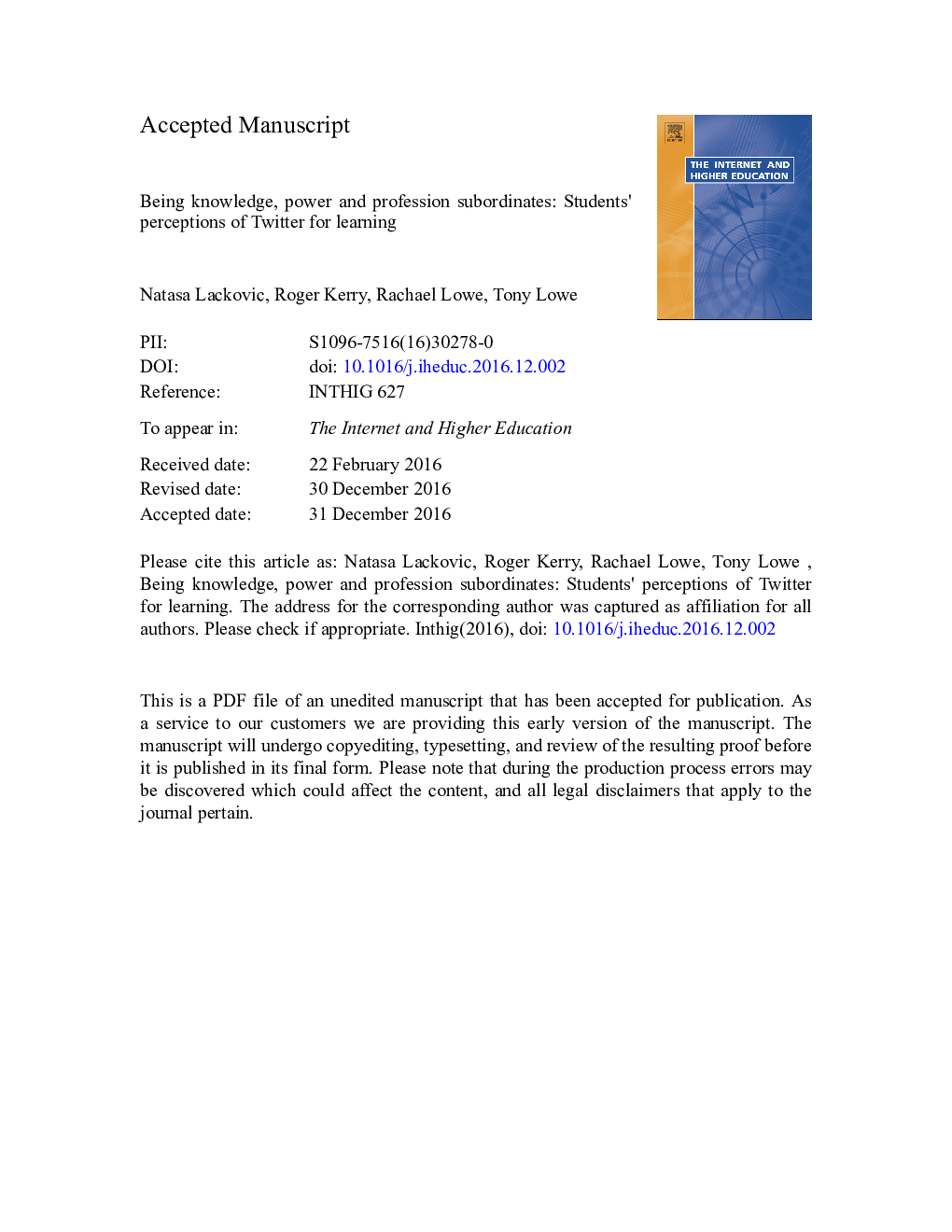| Article ID | Journal | Published Year | Pages | File Type |
|---|---|---|---|---|
| 4938802 | The Internet and Higher Education | 2017 | 26 Pages |
Abstract
Further conceptualisations are needed that consider students' actual engagement with and perceptions of Twitter for learning. To address this gap, an optional Twitter learning activity was created for a UK-based cohort of Year 1 Physiotherapy students. However, students did not contribute in this medium. Forty-three participating students were surveyed, and two focus groups held. These methods explored: 1) the frequency of student self-initiated use of social media, focusing on Twitter, 2) students' perceptions of Twitter, and 3) factors that would discourage or facilitate students' use of Twitter for learning. Results suggest students perceive Twitter as a platform where student knowledge and power is subordinated to leading Twitter users from relevant disciplines or professions, but also as a platform for enhancing career/business. To this end, a 'digital information activation' (Dig-Info-Act) pedagogy for social media is suggested: that is, a pedagogical orientation towards a critical analysis of and acting upon social media information.
Related Topics
Social Sciences and Humanities
Social Sciences
Education
Authors
Natasa Lackovic, Roger Kerry, Rachael Lowe, Tony Lowe,
